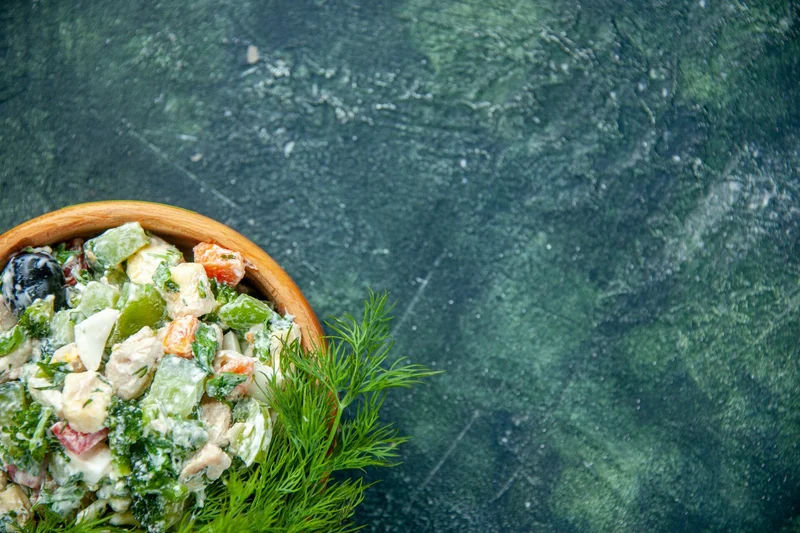Dill: properties, benefits, uses and what it is for
Dill - a miraculous herb for digestion
Dill is a herbaceous plant rich in vitamins and minerals. We can say that it is rich in vitamins A, B1, B6, C, D and E. The benefits of dill are not only in vitamins, but also in compounds. Dr. Mehmet Ucar spoke about the benefits of dill.
The benefits of dill
• Regulates blood sugar levels: Eating dill activates the production of insulin. Sudden spikes in blood sugar levels are prevented. Studies have shown that dill plays an important role in both the control and prevention of diabetes.
• Protects heart health: It plays an important role in maintaining heart health and reducing the risk of stroke. And limited research has shown that dill has a surprising effect on bad cholesterol levels. Lowering cholesterol levels is one of the main measures to protect heart health.
• Strengthens bones: When you consume dill, it increases calcium absorption and helps prevent chronic diseases such as bone loss and osteoporosis.
• Prevents Infection: Its antioxidant and vitamin C content has long made dill a powerful germ-fighting and infection-fighting agent. Dill leaves play an important role in the healing and healing of wounds by keeping germs out of the body. Helps general recuperation and recovery from problems such as coughs, colds, weakness, fatigue.
• Boosts immunity: Dill is effective in boosting the immune system. The body's ability to fight germs is enhanced with a strong immune system. Dill exhibits strong antibacterial, antiviral and antifungal properties in the prevention of various infections.
• Supports Digestion: Playing an important role in healthy digestion, dill is known as a carminative. It can help prevent stomach and digestive problems such as bloating, gas, and indigestion. Its fibrous structure is considered an advantage of dill. Because dill dietary fiber helps with constipation by improving intestinal motility.
In addition, the antacid properties of dill can prevent excessive acid production in the stomach. Such foods are better absorbed and are considered supportive in the treatment of diseases such as indigestion, ulcers, gastritis.
Dill can also help with indigestion and diarrhea caused by germs.
• May relieve pain: Considered an anti-inflammatory and pain reliever. Dill, which can be effective especially for inflammation and joint pain, can also help treat inflammation. You can add dill to your diet to reduce muscle cramps and sore muscles. Studies have also shown it to be effective for menstrual pain in women.
• May make breathing easier: Dill is important for people with respiratory problems. It plays an important role in problems such as colds, coughs, sore throats, flu. Cleanses and thins mucus particles in the lungs, chest and nasal cavities. This makes it easier to breathe. Supports the acceleration of the healing process of diseases such as bronchitis and asthma.
• Gives fresh breath: The benefits of dill seeds can be felt on the inhale. Dill seeds and leaves are known as breath fresheners. Dill essential oils can help relieve oral infections by minimizing free radical damage to the gums and teeth. You can use the power of this plant for oral health.
• Dill Helps Sleep: Thanks to the active ingredients and B vitamins found in dill leaves, it can be effective for insomnia. Dill, which you will consume in your daily diet, has a calming effect by activating the secretion of certain hormones and enzymes in the body. It also helps reduce stress hormone levels. You can have a restful and quality sleep with reduced stress levels. Dill is also known to have antidepressant effects.
• Dill promotes weight loss
100 grams of fresh dill contains about 43 calories. Since the amount of carbs is low, it can play a beneficial role in your weight loss diet.
How to use dill?
vegetable salad with herbs Photo source: freepik.com
You can add freshly ground dill to salads and meals. For dill salad, you can mix finely chopped dill with herbs like parsley and mint. You can sweeten it with more lemon and some olive oil. You can add dill to your porridge. You can use dill in boiled fish dishes. You can use it as a seasoning for root vegetables like baked potatoes.
You can also season soups and sauces with dill. You can use dill seeds as a spice or add them to pickles if you like. You can also make a dill tea with seeds.
If you want to use dried dill, you can buy it from herbalists. But remember, dried dill has a more bitter and stronger taste than fresh. Therefore, you must use the correct amount.
How to store dill?
Take a bunch of dill whose leaves are dark green, not yellow. Then wrap it tightly in paper towel and store in a sealed container in the refrigerator. You can store fresh dill in this way for 2-3 days. Dried dill is more durable than fresh. You can also wash the dill immediately after receiving it, dry it quickly, and freeze it. Before putting it in the freezer, put it in an airtight bag.